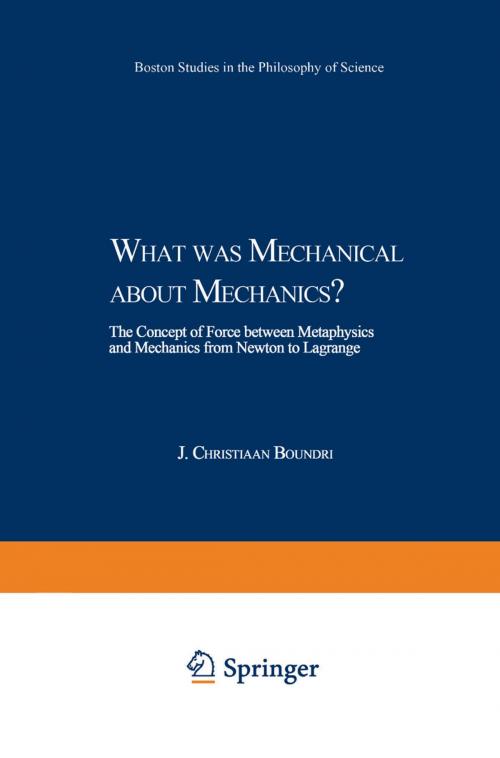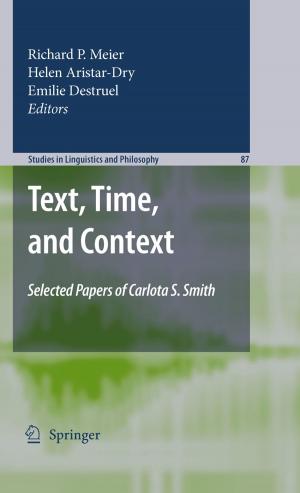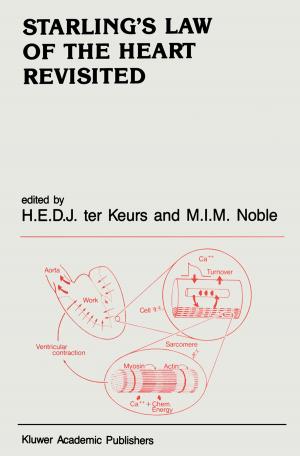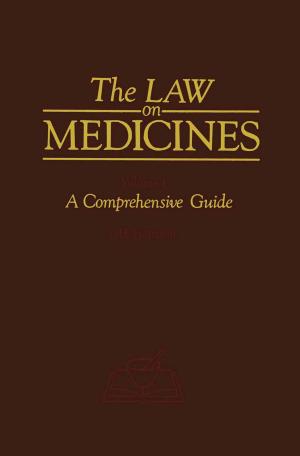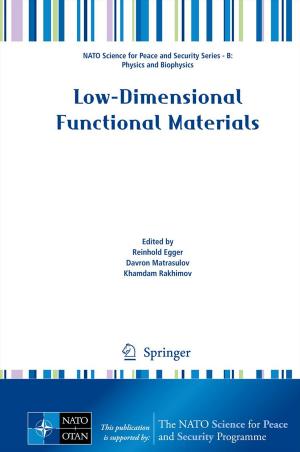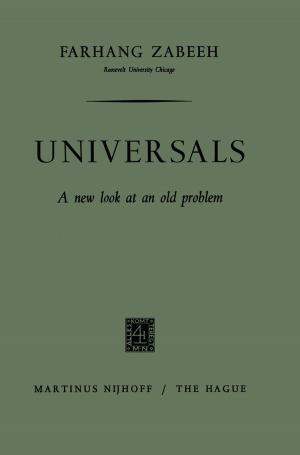What was Mechanical about Mechanics
The Concept of Force between Metaphysics and Mechanics from Newton to Lagrange
Nonfiction, Science & Nature, Science, Physics, General Physics, Other Sciences, Philosophy & Social Aspects| Author: | J.C. Boudri | ISBN: | 9789401736725 |
| Publisher: | Springer Netherlands | Publication: | April 17, 2013 |
| Imprint: | Springer | Language: | English |
| Author: | J.C. Boudri |
| ISBN: | 9789401736725 |
| Publisher: | Springer Netherlands |
| Publication: | April 17, 2013 |
| Imprint: | Springer |
| Language: | English |
The Age of Reason is left the Dark Ages of the history of mechanics. Clifford A. Truesdell) 1. 1 THE INVISIBLE TRUTH OF CLASSICAL PHYSICS There are some questions that physics since the days of Newton simply cannot an swer. Perhaps the most important of these can be categorized as 'questions of eth ics', and 'questions of ultimate meaning'. The question of humanity's place in the cosmos and in nature is pre-eminently a philosophical and religious one, and physics seems to have little to contribute to answering it. Although physics claims to have made very fundamental discoveries about the cosmos and nature, its concern is with the coherence and order of material phenomena rather than with questions of mean ing. Now and then thinkers such as Stephen Hawking or Fritjof Capra emerge, who appear to claim that a total world-view can be derived from physics. Generally, however, such authors do not actually make any great effort to make good on their claim to completeness: their answers to questions of meaning often pale in compari 2 son with their answers to conventional questions in physics. Moreover, to the extent that they do attempt to answer questions of meaning, it is easy to show that they 3 draw on assumptions from outside physics.
The Age of Reason is left the Dark Ages of the history of mechanics. Clifford A. Truesdell) 1. 1 THE INVISIBLE TRUTH OF CLASSICAL PHYSICS There are some questions that physics since the days of Newton simply cannot an swer. Perhaps the most important of these can be categorized as 'questions of eth ics', and 'questions of ultimate meaning'. The question of humanity's place in the cosmos and in nature is pre-eminently a philosophical and religious one, and physics seems to have little to contribute to answering it. Although physics claims to have made very fundamental discoveries about the cosmos and nature, its concern is with the coherence and order of material phenomena rather than with questions of mean ing. Now and then thinkers such as Stephen Hawking or Fritjof Capra emerge, who appear to claim that a total world-view can be derived from physics. Generally, however, such authors do not actually make any great effort to make good on their claim to completeness: their answers to questions of meaning often pale in compari 2 son with their answers to conventional questions in physics. Moreover, to the extent that they do attempt to answer questions of meaning, it is easy to show that they 3 draw on assumptions from outside physics.
